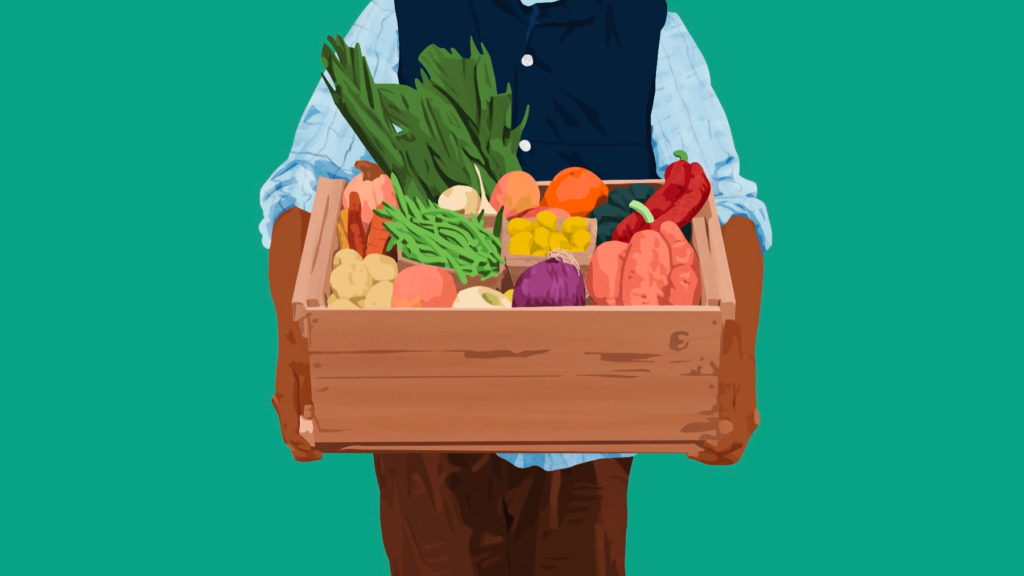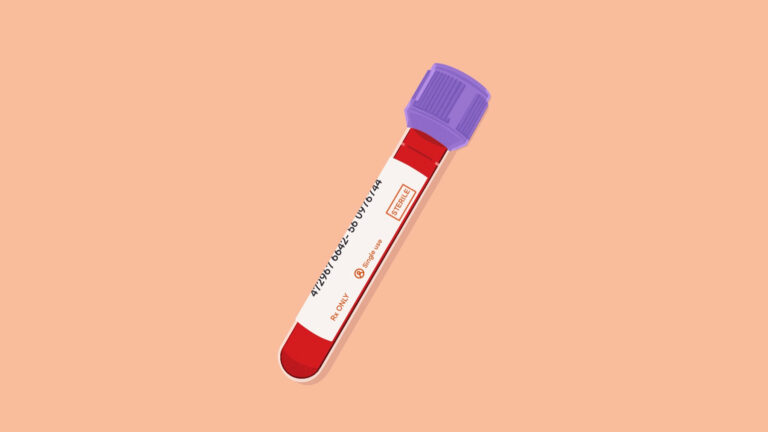Our food is making us sick. Who or what will help us get healthy?
Hard Truths
Largely preventable, diet-related chronic diseases are a leading cause of death in the US.
- 10 dietary factors cause nearly 1K deaths every day from heart disease, stroke, and diabetes alone.
- Nutrition-related chronic diseases—mainly heart disease, obesity, type 2 diabetes, and some cancers—accounted for $16T in costs over the last decade.
What should have been a wake-up call, America’s alarming rates of diet-related ailments made the pandemic much worse.
- Between March–December 2020, 78% of people hospitalized for COVID were overweight or obese.
- Individuals with BMIs of 45 or above had a 61% increased risk of death compared with those with a healthy weight.
In addition to the devastating loss of life, the food we eat is also decimating our economy, environment, and healthcare system.
According to a Rockefeller Foundation report, the US spends $1.1T on food each year. But, when the food system’s impact on society is factored in, the real number is actually $3.2T — including more than $1T in health-related costs.
Without transformative change, the report adds, Americans will face mounting challenges.
Starved for Health
Highlighting these issues, last week the White House held a conference on Hunger, Nutrition, and Health, the first event of its kind in more than 50 years.
Announcing a five-part plan for tackling food insecurity and diet-related diseases, the initiative’s goals include making healthy food more accessible, curbing sugar consumption, and expanding food-as-medicine programs.
A positive, shining a spotlight on individual and societal health could help catalyze support for the nation’s nutrition crisis. Of note, the proposals already attracted more than $8B in private- and public-sector commitments.
But, the proposals likely don’t go far enough, and it’s unclear if they’ll be implemented at all.
Let’s face it: As food journalist Michael Pollan writes, our current food system functions exactly as intended, producing “cheap calories in great abundance.”
More telling, Pollan says, this isn’t the free market at work — while consumers want healthier options, government policies often act against them.
Calling out Big Food, author Mark Bittman has railed against companies pushing ultra-processed foods. Further, he believes the government is complicit in creating a toxic food environment.
Whether it’s promoting a flawed food pyramid, ignoring advice to reduce sugar allowances in the USDA Dietary Guidelines, or failing to confront the obesity epidemic head-on, at best, our leaders have turned a blind eye to our deadly diet.
To be clear, personal responsibility is part of leading a healthier lifestyle, but, in Bittman’s words, simply knowing better isn’t enough:
“When most choices are destructive, it’s hard to choose wisely.”
Zooming out. Even in the face of inflation, US consumers are prioritizing fresh food. According to a Deloitte survey, 84% of shoppers consider health and wellness when making a purchase, and 55% are willing to pay a premium for foods that benefit their well-being.
But, information and access gaps remain — 62% of consumers are confused about which foods are healthy, while 40% don’t fully understand what “food as medicine” means.
Worse, some 17M Americans live in food deserts, and 10% of US households experienced food insecurity in 2021.
Punchline: Like John F. Kennedy’s effort to champion physical fitness and warnings about the dangers of smoking, we have to call the modern American diet what it is: a public health emergency. Otherwise, there’s little hope of addressing the full scope of this costly crisis.
🍄 Trippin’
As the mental health crisis intensifies, psychedelic medicine is moving into the mainstream.
On the Fitt Insider Podcast: Field Trip Health co-founder & CEO Ronan Levy discusses ketamine-assisted therapy, including the company’s network of clinics and at-home treatment options.
We also cover: breaking down stigmas and redefining mental healthcare.
Listen to today’s episode here
💧 Shop and Sweat
Pairing exclusive perks with fitness content, lululemon announced a new membership program tied to its connected hardware.
For context: With plans to merge experiential retail and at-home workouts, the athleticwear company paid $500M for fitness screen MIRROR in 2020.
But, as the connected equipment faded, lulu slashed MIRROR’s sales outlook last year, from highs of $250–275M down to $125–130M.
More recently, as the company beat earnings estimates, it made little mention of MIRROR’s performance. Now, with the launch of lululemon Studio, the brand is bringing its hardware into the mix.
Members only. Studio is an all-access membership that includes digital content, boutique fitness partnerships, and retail incentives. The catch? You have to buy a MIRROR.
For $39/month, members gain access to:
- Existing MIRROR content, including 10K on-demand and live classes
- Discounts on lululemon purchases, access to product drops, and in-store events
- Exclusive content and discounts to in-person classes from partners including AARMY, Y7 Studio, DOGPOUND, FORWARD__Space, Pure Barre, Rumble, AKT, and YogaSix
Buy-in. Hoping to drum up interest, lululemon cut the price of MIRROR in half, selling the connected fitness screen for $795 with free delivery — meaning, the retailer is willing to trade upfront revenue on equipment sales in exchange for recurring subscriptions and clothing purchases.
Punchline: As CEO Calvin McDonald puts it, the more lulu consumers sweat, the more they spend. To that end, promoting an active lifestyle could pay dividends. But, whether or not MIRROR is a necessary part of the omnichannel ecosystem remains unclear.
Share this headline
🚲 Pedal Pusher
Online, in-store, on the road, you name it… Peloton wants to be everywhere.
Take two. Prioritizing vertical integration and direct-to-consumer sales, Peloton initially sought to control every aspect of user experience.
But now, as the company rethinks its entire business model in search of growth, it can’t afford to be so picky — giving rise to new distribution deals:
- Yesterday, Peloton announced an agreement with Hilton, adding smart bikes to its portfolio of 5,400 US hotels.
- Last week, the fitness brand said it will begin selling equipment at more than 100 DICK’S Sporting Goods stores starting this holiday season.
- In August, Peloton began selling its original bike, workout camera, apparel, and accessories on Amazon.
The big picture: Nothing new, as sales slow and customer acquisition costs climb, connected fitness brands are tapping retail and hospitality partners.
But for Peloton, meeting people where they are is part of a more urgent strategy, including renting bikes, abandoning showrooms, outsourcing manufacturing, and potentially unbundling content from its hardware.
Looking ahead: As the turnaround continues, CEO Barry McCarthy said the company hasn’t invested in personalization to the degree that it should, telling the Goldman Sachs Technology Conference:
“From a content experience, the most revolutionary thing we’ll do in the next 12 months will be on the personalization side.”
📰 News & Notes
- Oura unveils new Horizon ring.
- Amazon launches bedside sleep tracker.
- Life Time cuts ribbon on wellness village in Nevada.
- F45 receives $385M buy-out offer amid ongoing turmoil.
- Fitt Jobs: See who’s hiring in the health & wellness industry.
- Liteboxer moves beyond boxing with new full-body VR workouts.
- Startup Q&A: Vizer CEO Samantha Pantazopoulos on incentivizing wellness.
- Muoverti rebrands, announces triathlon-focused bike. [Re-read: Endurance Tech]
💰 Money Moves
- EMS fitness startup Katalyst raised $26M in a Series A round led by Stripes.
More from Fitt Insider: Our conversation with Katalyst CEO Bjoern Woltermann - LRMR Ventures, the family office of LeBron James and Maverick Carter, led a consortium to buy a team in Major League Pickleball.
- League One Volleyball, a professional league and youth sport organization, secured $16.75M from a consortium of investors including Kevin Durant’s 35V and Billie Jean King.
- Pro women’s sports league organization Athletes Unlimited raised $30M in a round led by Schusterman Family Investments, with participation from Kevin Durant’s 35V.
- Canned mineral water brand Liquid Death raised $70M at a $700M valuation.
- Sustainability-focused bottled water company PATH secured $30M in a Series A round led by Altos Ventures.
- Pulp Culture, maker of fermented cold-pressed juice drinks, closed $7M in a Series A round.
More from Fitt Insider: Functional Beverage Boom - GrubMarket, a healthy food e-commerce platform, secured $120M in a funding round, reaching a $2B valuation.
- Allergy-friendly snack company Partake Foods raised $11.5M in a Series B round.
- Plant-based food company Wicked Kitchen added $20M in a bridge funding round from actor Woody Harrelson and others.
- Rippl Care, a mental health platform for seniors, launched after raising $32M in a seed round co-led by ARCH Venture Partners and General Catalyst.
- Club management management software company Clubessential Holdings acquired BlueGolf, a golf tournament management platform.
Today’s newsletter was brought to you by Anthony Vennare, Joe Vennare, and Ryan Deer.






